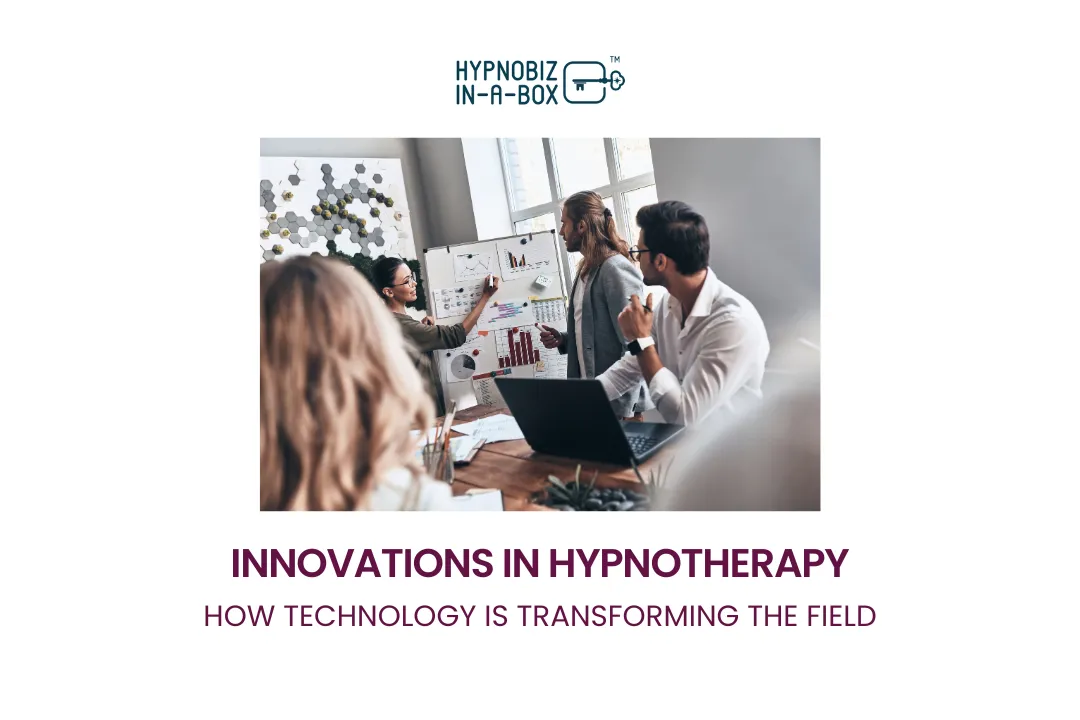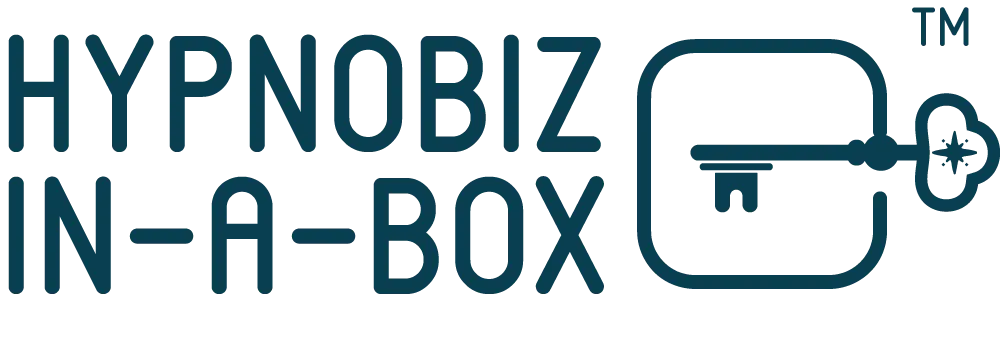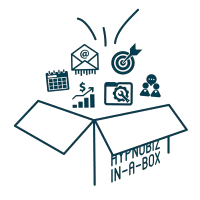HypnoBiz-in-a-Box™ Blog

Tech Advancements in Hypnosis: Transforming the Field
Embracing Technological Advancements in Hypnotherapy
As technology continues to evolve, so too does the field of hypnotherapy. Advancements in technology have opened up new possibilities for hypnotherapists, allowing them to enhance their practice, reach more clients, and achieve better results. This article will explore the latest innovations in hypnotherapy and how technology is transforming the field.
Virtual Reality (VR) in Hypnotherapy
Virtual reality (VR) technology has emerged as a powerful tool for enhancing the effectiveness of hypnotherapy sessions. By immersing clients in realistic virtual environments, VR can deepen the hypnotic experience and improve therapeutic outcomes.
How is VR being used in hypnotherapy:
Exposure Therapy: VR allows hypnotherapists to create immersive environments where clients can confront and overcome fears, phobias, and anxieties in a safe and controlled setting.
Pain Management: VR can distract clients from pain during medical procedures or chronic pain management sessions, helping them relax and reduce discomfort.
Skill Building: Hypnotherapists can use VR simulations to help clients practice and reinforce new skills or behaviors, such as public speaking or stress management techniques.
Biofeedback Devices
Biofeedback devices are another innovative technology that is being integrated into hypnotherapy practice. These devices measure physiological signals such as heart rate, skin conductance, and muscle tension, providing real-time feedback to the hypnotherapist and the client.
Here is how biofeedback devices are being used in hypnotherapy:
Enhancing Relaxation: Biofeedback devices can help clients achieve deeper states of relaxation by providing visual or auditory cues based on their physiological responses.
Customizing Interventions: Hypnotherapists can tailor their interventions based on real-time feedback from biofeedback devices, adjusting techniques and suggestions to optimize therapeutic outcomes.
Increasing Awareness: Biofeedback helps clients become more aware of their body's responses to hypnosis, facilitating greater self-awareness and self-regulation.
Mobile Apps and Online Platforms
The proliferation of mobile apps and online platforms has made hypnotherapy more accessible and convenient. These digital tools offer a wide range of resources and support for hypnotherapists and clients.
This is how mobile apps and online platforms are transforming hypnotherapy:
Guided Hypnosis Sessions: Mobile apps offer a variety of guided hypnosis sessions covering topics such as stress relief, sleep improvement, and behavior change, allowing clients to access hypnotherapy anytime, anywhere.
Self-Hypnosis Tools: Online platforms provide self-hypnosis tools and resources, empowering clients to practice self-hypnosis techniques and reinforce therapeutic interventions between sessions.
Client Tracking and Monitoring: Some apps and platforms include features for tracking and monitoring client progress, allowing hypnotherapists to monitor adherence, track outcomes, and adjust interventions as needed.
Artificial Intelligence (AI) Assistants
Artificial intelligence (AI) assistants are revolutionizing how hypnotherapists interact with clients and deliver therapeutic interventions. These AI-powered tools leverage natural language processing and machine learning algorithms to provide personalized support and guidance. How are AI assistants are being used in hypnotherapy:
Virtual Coaching: AI assistants can act as virtual coaches, providing clients personalized recommendations, reminders, and support to help them achieve their goals.
Customized Interventions: AI algorithms analyze client data and preferences to generate personalized hypnosis scripts, suggestions, and interventions tailored to each individual's needs and preferences.
24/7 Support: AI assistants offer round-the-clock support and guidance, allowing clients to access assistance and resources whenever needed, without relying on in-person sessions.
Tele-hypnotherapy
Tele-hypnotherapy, or remote hypnotherapy sessions conducted via video conferencing platforms, has become increasingly popular in recent years, especially in light of the COVID-19 pandemic.
Tele-hypnotherapy offers several benefits for both hypnotherapists and clients:
Accessibility: Tele-hypnotherapy eliminates geographical barriers, allowing clients to access hypnotherapy services anywhere in the world, regardless of location.
Convenience: Remote sessions eliminate the need for clients to travel to a physical office, saving time and eliminating transportation costs.
Comfort and Privacy: Clients can participate in hypnotherapy sessions from the comfort and privacy of their own homes, reducing feelings of self-consciousness and anxiety.
Conclusion: Embracing the Future of Hypnotherapy
In conclusion, technological advancements are revolutionizing the field of hypnotherapy, offering new tools, techniques, and opportunities for hypnotherapists to enhance their practice and improve client outcomes. By embracing innovations such as virtual reality, biofeedback devices, mobile apps, artificial intelligence, and tele-hypnotherapy, hypnotherapists can stay at the forefront of their field and continue to provide effective and accessible care to their clients.
FAQs (Frequently Asked Questions)
Are virtual reality hypnotherapy sessions as effective as in-person sessions?
Research suggests that virtual reality hypnotherapy sessions can be just as effective as in-person sessions, especially for certain applications such as exposure therapy and pain management.
How can I find reliable mobile apps and online platforms for hypnotherapy?
Look for apps and platforms developed by reputable hypnotherapists or organizations that have positive user reviews, and offer evidence-based content and techniques.
Is tele-hypnotherapy suitable for all clients?
Tele-hypnotherapy may not be suitable for all clients, especially those with severe mental health conditions or those who require hands-on interventions. Assessing each client's needs and suitability for remote sessions is important.
How do biofeedback devices work in hypnotherapy sessions?
Biofeedback devices measure physiological signals such as heart rate, skin conductance, and muscle tension, providing real-time feedback to the hypnotherapist and the client. This feedback can enhance relaxation, customize interventions, and increase awareness.
Are AI assistants replacing human hypnotherapists?
AI assistants are designed to support and augment the work of human hypnotherapists, not replace them. While AI can provide personalized recommendations and support, human therapists offer empathy, intuition, and understanding that AI cannot replicate.

